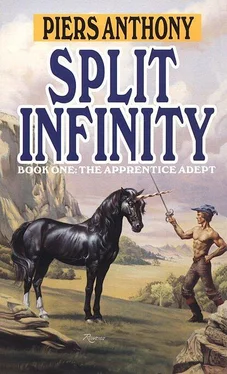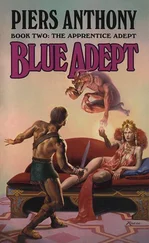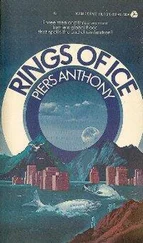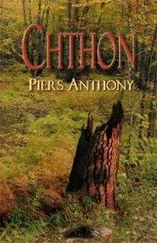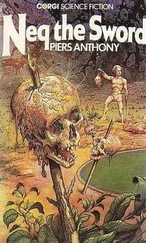Piers Anthony - Split Infinity
Здесь есть возможность читать онлайн «Piers Anthony - Split Infinity» весь текст электронной книги совершенно бесплатно (целиком полную версию без сокращений). В некоторых случаях можно слушать аудио, скачать через торрент в формате fb2 и присутствует краткое содержание. Год выпуска: 2011, Жанр: Фэнтези, на английском языке. Описание произведения, (предисловие) а так же отзывы посетителей доступны на портале библиотеки ЛибКат.
- Название:Split Infinity
- Автор:
- Жанр:
- Год:2011
- ISBN:нет данных
- Рейтинг книги:5 / 5. Голосов: 1
-
Избранное:Добавить в избранное
- Отзывы:
-
Ваша оценка:
- 100
- 1
- 2
- 3
- 4
- 5
Split Infinity: краткое содержание, описание и аннотация
Предлагаем к чтению аннотацию, описание, краткое содержание или предисловие (зависит от того, что написал сам автор книги «Split Infinity»). Если вы не нашли необходимую информацию о книге — напишите в комментариях, мы постараемся отыскать её.
Split Infinity — читать онлайн бесплатно полную книгу (весь текст) целиком
Ниже представлен текст книги, разбитый по страницам. Система сохранения места последней прочитанной страницы, позволяет с удобством читать онлайн бесплатно книгу «Split Infinity», без необходимости каждый раз заново искать на чём Вы остановились. Поставьте закладку, и сможете в любой момент перейти на страницу, на которой закончили чтение.
Интервал:
Закладка:
Snack settled down to play. The game was by the clock, because this was a challenge for access to the Tourney; probably few games of Go would be played, but time was limited to keep the Tourney moving well. This was another help to Stile; given unlimited time to ponder. Snack could probably beat him. Under time pressure Stile generally did well. That was one reason he was a top Gamesman.
They took turns laying down stones, forming strategic patterns on the board. The object was to enclose as much space as possible, as with an army controlling territory, and to capture as many of the opponent’s stones as possible, as with prisoners of war. Territory was the primary thing, but it was often acquired by wiping out enemy representatives. Stile pictured each white pebble as a hostile soldier, implacable, menacing; and each black pebble as a Defender of the Faith, up-right and righteous. But it was not at all certain that right would prevail. He had to dispose his troops adantageously, and in the heat of battle the advantage was not easy to discern.
A stone/man was captured when all his avenues of freedom were curtailed. If enemy forces blocked him off on three sides, he had only one freedom remaining; if not buttressed by another of his kind, forming a chain, he could lose his freedom and be lost. But two men could be surrounded too, or ten enclosed; numbers were no certain security here. Rather, position was most important. There were devices to protect territory, such as “eyes” or divisions that prevented enclosure by the other side, but these took stones that might be more profitably utilized elsewhere. Judgment was vital.
Snack proceeded well in the early stages. Then the complexity of interaction increased, and time ran short, and Stile applied the notorious Stile stare to unnerve his opponent. It was a concentrated glare, an almost tangible aura of hate; every time Snack glanced up he encountered that implacable force. At first Snack shrugged it off, knowing that this was all part of the game, but in time the unremitting intensity of it wore him down, until he began to make mistakes. Trifling errors at first, but these upset him all out of proportion, causing his concentration to suffer. He misread a seki situation, giving away several stones, failed to make an eye to protect a vulnerable territory, and used stones wastefully.
Even before the game’s conclusion, it was obvious that Stile had it. Snack, shaken, resigned without going through the scoring procedure. Rung Seven was Stile’s.
Stile eased up on the glare—and Snack shook his head, feeling foolish. He understood how poorly he had played in the ambience of that malevolence—now that the pressure was off. At his top form he might reason-ably have beaten Stile, but he had been far below his standard. Stile himself was sorry, but he was above all a competitor, and he had needed this Rung. All his ma-lignance, the product of a lifetime’s reaction to the slight of his size, came out in concentrated form during competition of this nature, and it was a major key to his success. Stile was more highly motivated than most people, inherently, and he drove harder, and he never showed mercy in the Game.
The holder of Rung Six was a contrast. His name was Hulk, after an obscure comic character of a prior century he was thought to resemble, and he was a huge, powerful man. Hulk was not only ready but eager to meet the challenge. He was a specialist in the physical games, but was not stupid. This was his last year of tenure, so he was trying to move into qualifying position; unfortunately his last challenge to Rung Five had been turned back on a Game of chance, and he could not rechallenge until the rung-order shifted, or until he had successfully answered a challenge to his own Rung. Stile was that challenge. The audience, aware of this, had swelled to respectable size; both Stile and Hulk were popular Gamesmen, and they represented the extremes of physical appearance, adding to that novelty. The giant and the midget, locked in combat!
Stile got the numbered face of the prime grid, this time. For once he had the opening break! He could steer the selection away from Hulk’s specialty of the physical.
But Stile hesitated. Two things influenced him. First, the element of surprise: why should he do what his opponent expected, which was to choose the MENTAL column? Hulk was pretty canny, though he tried to conceal this, just as Stile tried to obscure his physical abilities. Any mistake an opponent might make in estimating the capacities of a player was good news for that player. Hulk would choose the NAKED row, putting it into the box of straight mental games, where surely he had some specialties in reserve. Second, it would be a prime challenge and an exhilarating experience to take Hulk in his region of strength—a considerable show for the watching masses.
No, Stile told himself. This was merely his foolishness, a reaction to the countless times he had been disparagingly called a pygmy. He had a thing about large men, a need to put them down, to prove he was better than they, and to do it physically. He knew this was fatuous; large men were no more responsible for their size than Stile was for his own. Yet it was an incubus, a constant imperative that would never yield to logic. He wanted to humble this giant, to grind him down ignominiously before the world. He had to.
Thus it came up 1A—PHYSICAL NAKED. The audience made a soft “oooh” of surprise and expectation.
In the muted distance came someone’s call: “Stile’s going after Hulk in 1A!” and a responding cry of amazement.
Hulk looked up, and they exchanged a fleeting smile over the unit; both of them liked a good audience. In fact, Stile realized, he was more like Hulk than unlike him, in certain fundamental respects. It was push-pull; Stile both liked and disliked, envied and resented the other man, wanting to be like him while wanting to prove he didn’t need to be like him.
But had he, in his silly imperative, thrown away any advantage he might have had? Hulk’s physical prowess was no empty reputation. Stile had made the grand play—and might now pay the consequence. Loss—and termination of employment, when he most needed the support of an understanding employer. Stile began to feel the weakness of uncertainty.
They played the next grid. This, he realized suddenly, was the same one he had come to with Sheen, when he met her in her guise of a woman. Of a living woman. That Dust Slide—he remembered that with a certain fondness. So much had happened since then! He had suffered knee injury, threats against his life, dis-overed the frame of Phaze, befriended a lady unicorn and gentleman werewolf, and was now making his move to enter the Tourney—two years before his time. A life-time of experience in about ten days!
The subgrid’s top facet listed SEPARATE—INACTIVE—COMBAT—COOPERATIVE, and this was the one Stile had. He was tempted to go for COMBAT, but his internal need to prove himself did not extend to such idiocy. He could hold his own in most martial arts—but he remembered the problem he had had trying to throw the goon, in the fantasy frame, and Hulk was the wrestling champion of the over-age-thirty men. A good big man could indeed beat a good small man, other things being equal. Stile selected SEPARATE.
Hulk’s options were for the surfaces: FLAT—VARIABLE—DISCONTINUITY—LIQUID. Hulk was a powerful swimmer—but Stile was an expert diver, and these were in the same section. Stile’s gymnastic abilities gave him the advantage on discontinuous surfaces too; he could do tricks on the trapeze or parallel bars the larger man could never match. Hulk’s best bet was to opt for VARIABLE, which included mountain climbing and sliding. A speed-hike up a mountain slope with a twenty-kilogram pack could finish Stile, since there were no allowances for sex or size in the Game. Of course Stile would never allow himself to be trapped like that, but Hulk could make him sweat to avoid it.
Читать дальшеИнтервал:
Закладка:
Похожие книги на «Split Infinity»
Представляем Вашему вниманию похожие книги на «Split Infinity» списком для выбора. Мы отобрали схожую по названию и смыслу литературу в надежде предоставить читателям больше вариантов отыскать новые, интересные, ещё непрочитанные произведения.
Обсуждение, отзывы о книге «Split Infinity» и просто собственные мнения читателей. Оставьте ваши комментарии, напишите, что Вы думаете о произведении, его смысле или главных героях. Укажите что конкретно понравилось, а что нет, и почему Вы так считаете.
